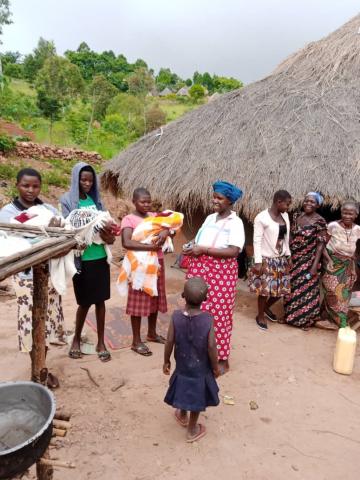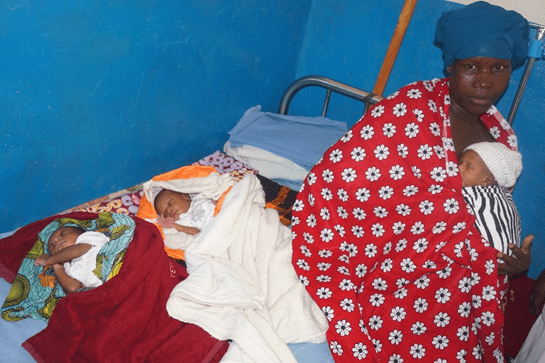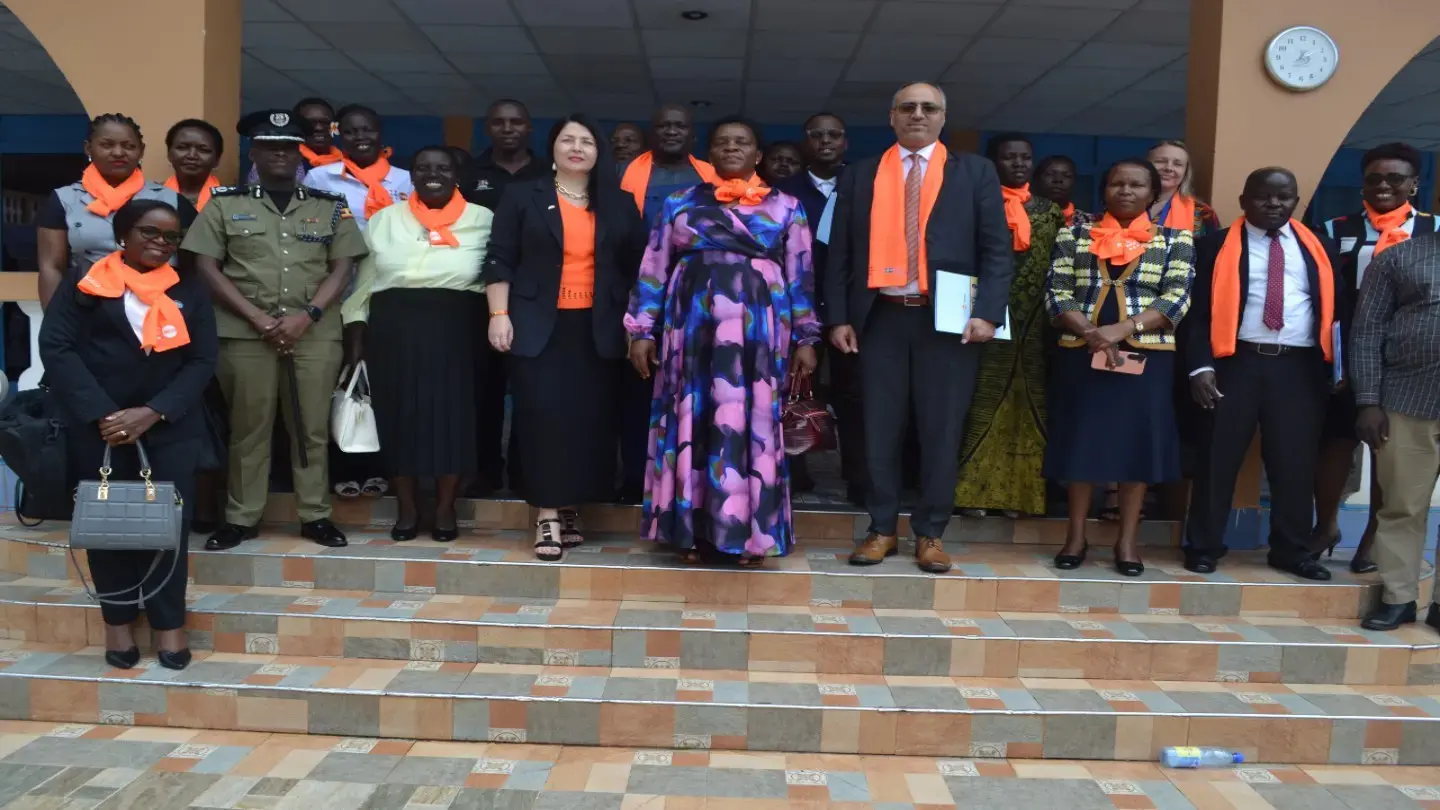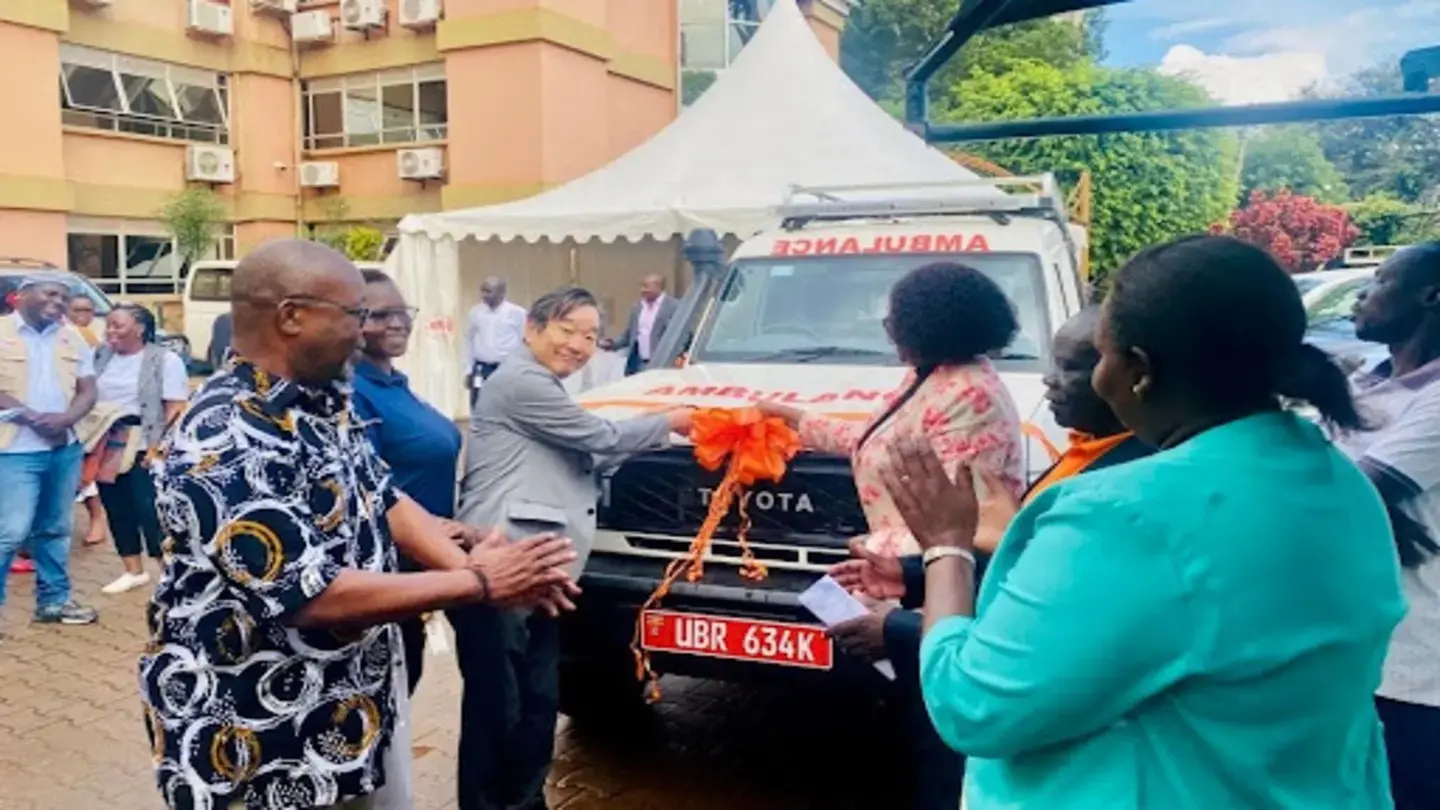Carrying her seventh pregnancy, 35-year-old Salama Akello knew that the safest way to go through it would be to ensure to attend all the antenatal care (ANC) visits, thanks to the Village Health Teams (VHTs) in her neighborhood.
Akello attended five ANC sessions at Olussi Mission Health Center (HC) III in Elussi sub-county, Nebbi district, little did she know that she was carrying triplets. There are no CT scan facilities at the HC III, a case for many lower level health centers in rural Uganda. Besides, she never imagined that by the time her pregnancy would come to term, Uganda would be in partial lockdown due to COVID-19, with restricted movement.
Luckily for Akello, when labour set in on the evening of April 24th, she was picked from her home by the ambulance to the health facility where she had a safe delivery, supported by a midwife. “I called the Ambulance and I was asked to walk to the nearest access road that is about a few meters away,” narrated Akello.
Within three hours after Akello arrived at the health center, all her three babies were delivered. All three are boys, weighed 2.8kg, 2.5kg and 2.2.kg at birth.
Saved by a midwife
Uganda, now with 89 confirmed cases of COVID-19 responded to the pandemic with a partial lockdown within the first week of detection of the first case. Movement is restricted and several suspected cases are under quarantine.Soon, word reached health workers across the country that pregnant mothers were stranded, lacking transport to health facilities for safe deliveries. “We were also seeing a significant reduction in the number of deliveries at the facility,” said Sr. Joy Nyamutoro, at registered midwife at Olussi Mission HC III.Sr. Nyamutoro supported Akello to safely deliver her triplets.
A week prior, Sr. Nyamutoro, together with Sr. Florence Owacha, the in-charge at Olussi Mission HC III, and other midwives at the facility, moved around the community announcing that the health centre would pick any pregnant woman in labour when unable to come to the facility.“We used ANC registers to map out pregnant mothers in our catchment area in Elussi sub-county and neibouring communities,” said Sr. Owacha.With the support of VHTs and Local Leaders (LCs), the message of the ambulance for pregnant women was relayed in the communities.
For Akello, the news about the ambulance was such a great relief.“I feared to walk down the steep hill from my village to the health center,” she said.It would mean walking five kilometers from her home in Jupugetta village to Olussi Mission HC III.“My triplets are a blessing to the family and me.” Akello told UNFPA field staff who visited the facility on that day.
Sr. Nyamutoro took the opportunity to talk to the couple about family planning. They promised to take on a method of their choice when they return to the health center for postnatal care.

UNFPA works to ensure that every pregnancy is wanted, and every child birth is safe.
Sr. Owacha thanked United Nations Population Fund, UNFPA for supporting Olussi Mission HC III to ensure safe births for mothers.
According to records, the facility registered 20 deliveries every week. The numbers dropped to 7 deliveries per week during the first weeks of the COVID-19 lockdown. When the ambulance service for pregnant mothers was introduced, the numbers picked up again to an average of 20 deliveries per week.
To support Government of Uganda’s response to COVID-19 pandemic, UNFPA with funding from the Government of Netherlands, procured fuel vouchers worth UGX 67.6 million (approx. USD 17,835) that were handed over to fourteen districts in the Northern and West Nile regions of Uganda, to ensure that ambulances transport mothers to health facilities. This is in addition to other support to midwifery services in Uganda.
In Uganda, 7 out of 10 women deliver with assistance from a skilled birth attendant, mainly a Midwife, according to the 2016 Uganda Health and Demographic Survey (UDHS). “Studies show that when supported by a functional health system, Midwives can avert up to 87 percent of all maternal and newborn deaths,” said Mr. Alain Sibenaler, UNFPA Representative.
With focus on the hard-to-reach areas like Karamoja and West Nile, UNFPA, with the funding from the Government of Sweden, has supported the training of 590 midwifery students over the last 10 years. More than 68 percent these midwives have been deployed in health facilities across the country, bridging the midwifery staffing gap. “On the International Day of the Midwife, that is commemorated every year on 5th May, we stand in solidarity with midwives around the world and thank them for the life-saving work they do,” said Mr. Sibenaler.
“There is no stronger testament to their care and commitment than to count the number of babies they deliver every day, more so in hard time like this, amidst the COVID-19 pandemic.”
- Compiled by Denis Bakomeza and Prossy Nakanjako/UNFPA





